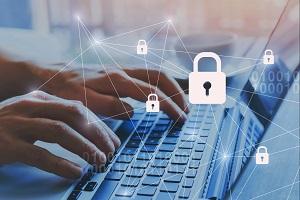
Keeping Your Financial Accounts Safe
You may have seen the recent frightening article, “Cybercrooks Are Targeting Retirement Accounts, and There’s No Guarantee You’ll Get Your Money Back” which tells the cautionary tale of a woman who lost over 90% of the value of her SIMPLE retirement account to hackers. Fortunately for her, the custodian (American Funds) agreed to make her whole, but the time period during which she waited for that answer was absolutely gut-wrenching.
Someone had stolen her identity and was able to pose as her, changing her mailing address. Next, withdrawals were requested with checks mailed to the fake address. Unlike with credit card fraud, investment account losses due to fraud are not guaranteed. However, we would fully expect a reputable company to compensate a client who was harmed by fraudulent activity that occurred on their platform. One problem, of course, is that there may be a significant delay while the company investigates, further elevating the client’s already high anxiety.
“Hackers are finding it’s getting harder to hack bank accounts, so they’re saying where else is there more money? Where can we go? And they’ve started to discover 401(k) accounts, they’ve started to discover retirement funds,” as the article quotes Ed Mierzwinski, senior director of the federal consumer program for the U.S. Public Research Interest Group.
What can you do to minimize the chance of being the victim of fraud? The first answer is always to be vigilant. You can be certain that nobody from your account’s custodian will ask you for your password. And speaking of passwords, please follow the best practice of using strong passwords containing capitals, lower-case letters, numbers, and symbols. Avoid using the same passwords repeatedly and change them regularly. For some people, a password manager such as Dashlane or Lastpass may be helpful.
On all your computers, please have up-to-date firewalls and virus protection. For Windows 10, we can vouch for Windows Security that comes bundled with it. And of course, never click on a link from an email that is not from a trusted source or even if it is from a trusted source but looks suspicious. If you have ever received an email from a friend or family member whose email got hacked (we’re guessing you have), then you know exactly what we’re talking about. Lastly, avoid using public unsecured wireless networks for sensitive information. We can assure you there’s nothing you need to do in your 401(k) that can’t wait until you get home.
If you have any other tips for keeping your financial accounts safe that you would like to share with us, please email us at advisors@clarityca.com.

